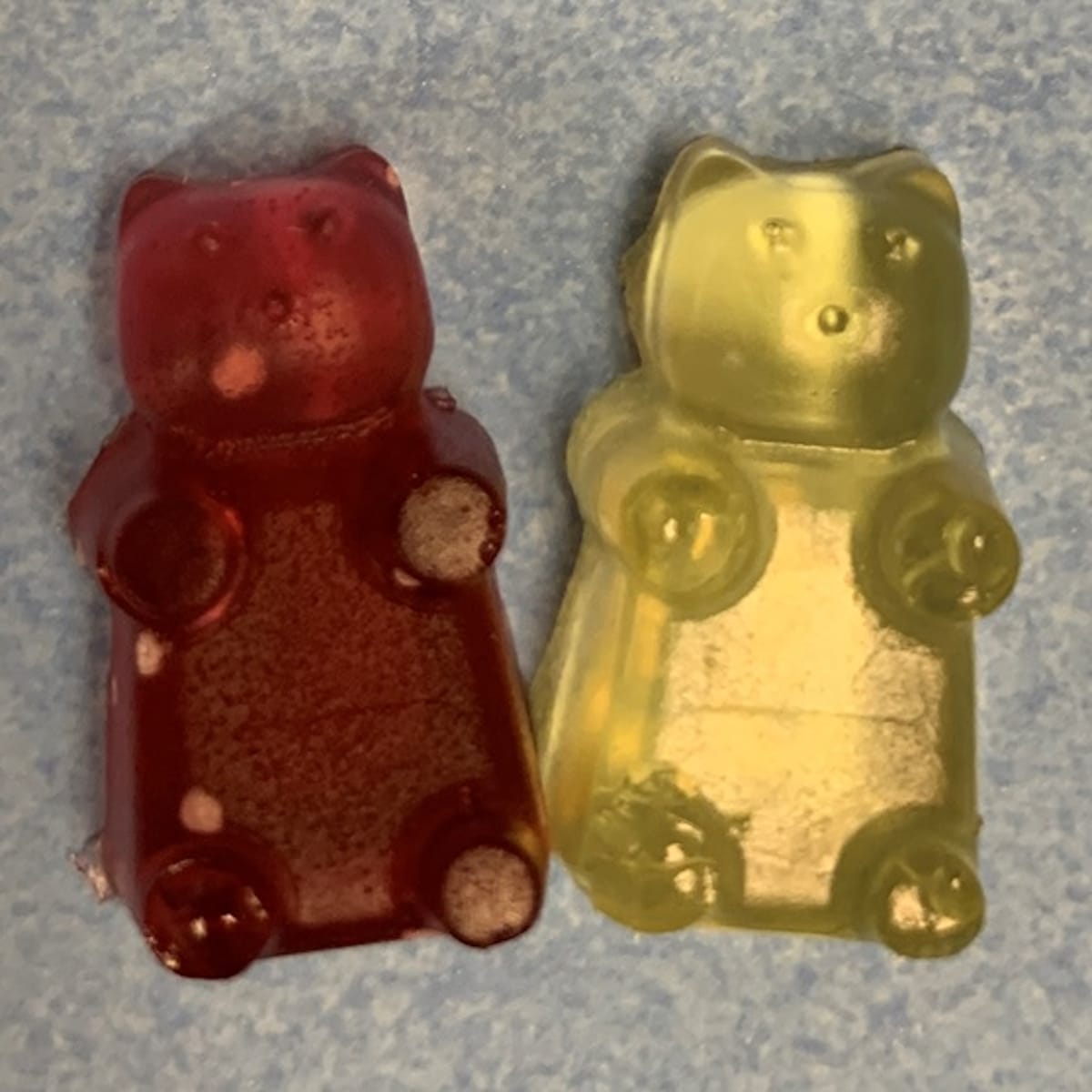Researchers Create a Resin for Wind Turbines That Could Be Recycled to Make Gummy Bears

 Why you can trust us
Why you can trust us
Founded in 2005 as an Ohio-based environmental newspaper, EcoWatch is a digital platform dedicated to publishing quality, science-based content on environmental issues, causes, and solutions.
One day, your favorite gummy candies may be made, in part, from recycled wind turbines. Researchers at Michigan State University have developed a composite resin that can be used to make wind turbines that are more easily recycled into other products. The composite resin could be reused for other items ranging from vehicle taillights to diapers to gummy bears.
Wind power is an increasingly popular form of clean energy, but problems arise when it’s time to retire a turbine. The turbine blades are typically made of fiberglass, and once they reach the end of their life cycle, they are often sawed into pieces and discarded in landfills. Some companies and manufacturers are working to find ways to make it easier to recycle these turbines, as the plastic and glass in the fiberglass can be difficult to separate for recycling.
Now, scientists are turning to an entirely new material that could still protect the turbines from harsh weather conditions while also being more readily recyclable.
“The beauty of our resin system is that at the end of its use cycle, we can dissolve it, and that releases it from whatever matrix it’s in so that it can be used over and over again in an infinite loop,” said John Dorgan, Ph.D., who is presenting the research on the resin at The American Chemical Society. “That’s the goal of the circular economy.”
The resulting composite resin is made from glass fibers combined with a plant-derived polymer and a synthetic polymer. Panels made with this composite resin were then placed in fresh monomer, so the scientists could then remove the glass fibers. When the resin panels were placed in an alkaline solution, they produced potassium lactate. This substance can then be purified and turned into sweets.
“We recovered food-grade potassium lactate and used it to make gummy bear candies, which I ate,” Dorgan said.
While it may seem gross at first to consume candies recycled from wind turbine resin, Dorgan explained that it’s all part of the circular system on Earth.
“A carbon atom derived from a plant, like corn or grass, is no different from a carbon atom that came from a fossil fuel,” Dorgan said. “It’s all part of the global carbon cycle, and we’ve shown that we can go from biomass in the field to durable plastic materials and back to foodstuffs.”
Placing the panels in the alkaline solution also produced poly(methyl methacrylate) (PMMA), which is a common acrylic material used for car taillights, windows, and other durable products. Increasing the temperature of the digestion allowed PMMA to convert into the absorbent material poly(methacrylic acid), which can be used in diapers.
The scientists hope to test the resin on medium-sized wind turbines to further explore their viability and scalability.
Subscribe to get exclusive updates in our daily newsletter!
By signing up, you agree to the Terms of Use and Privacy Policy & to receive electronic communications from EcoWatch Media Group, which may include marketing promotions, advertisements and sponsored content.

 233k
233k  41k
41k  Subscribe
Subscribe 




